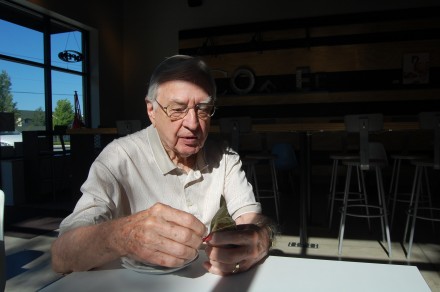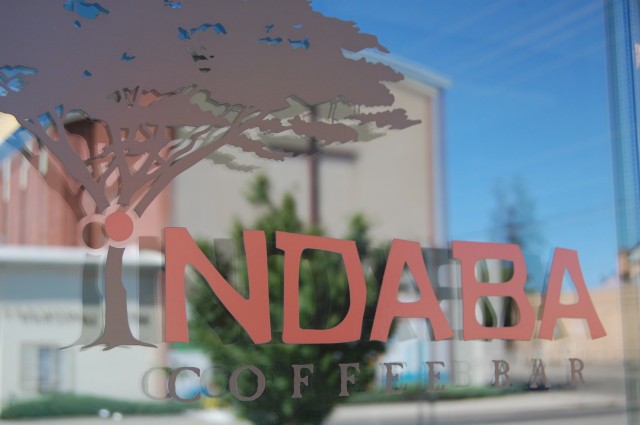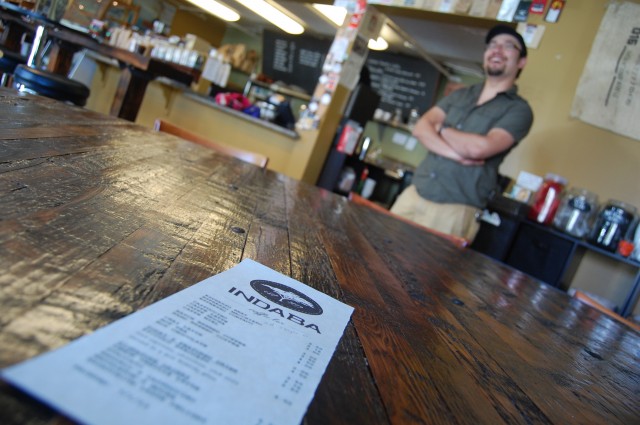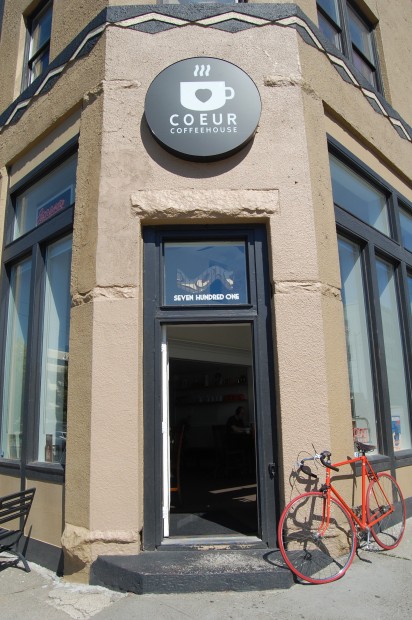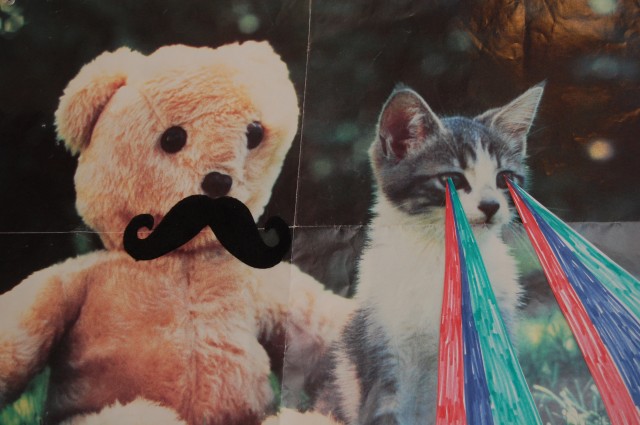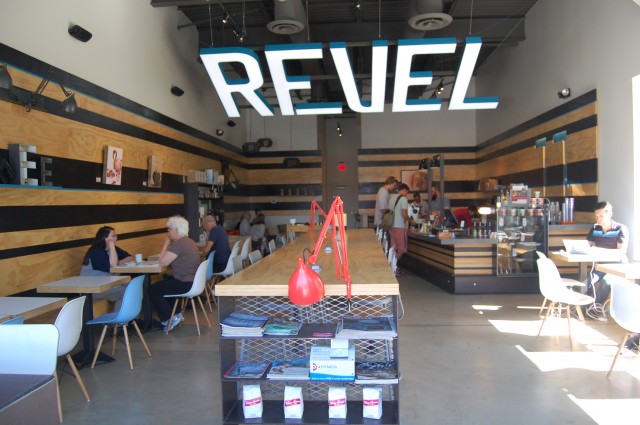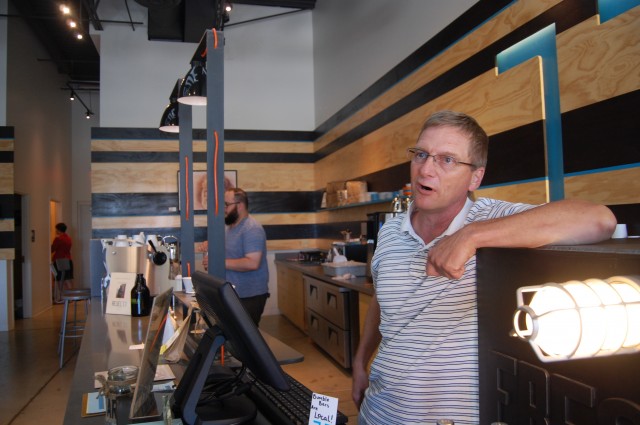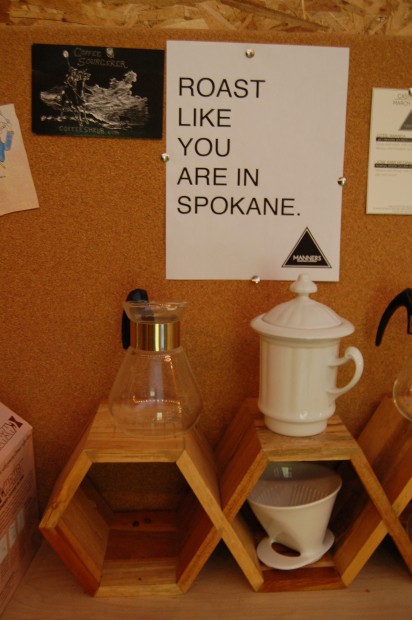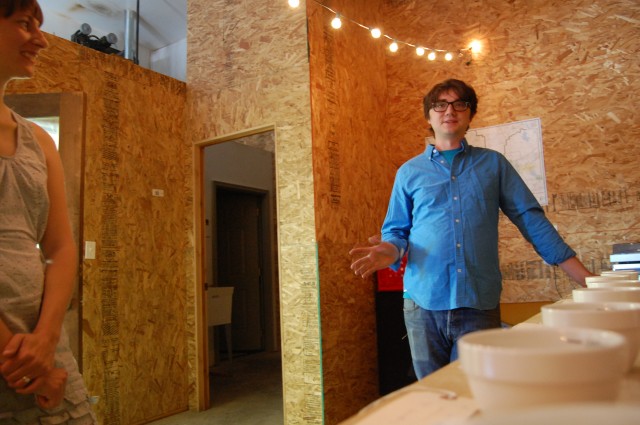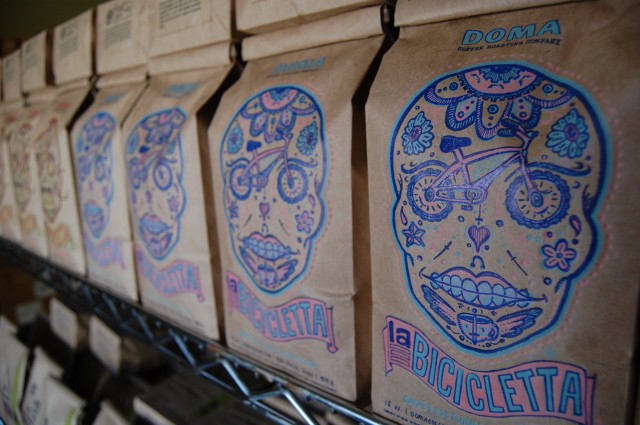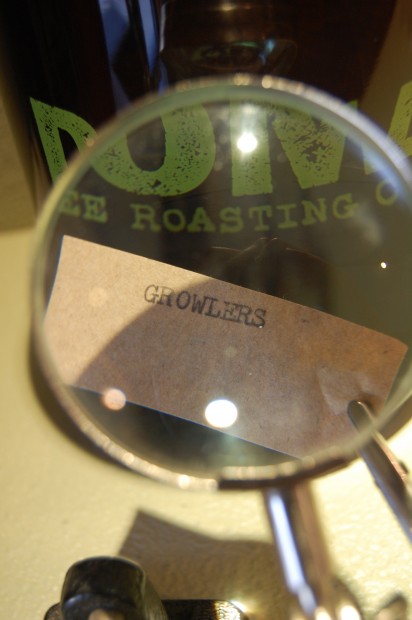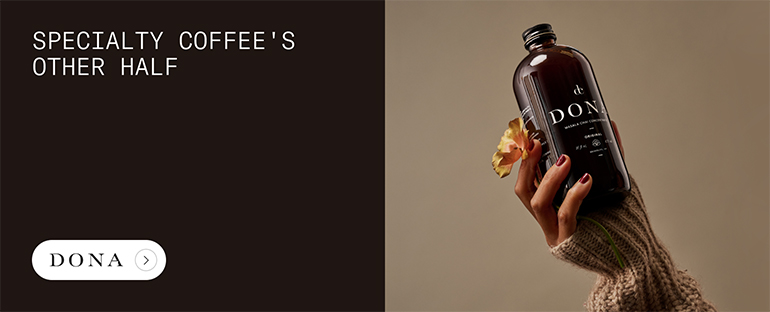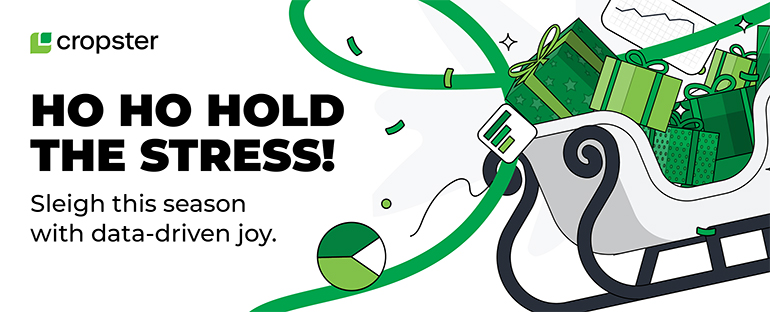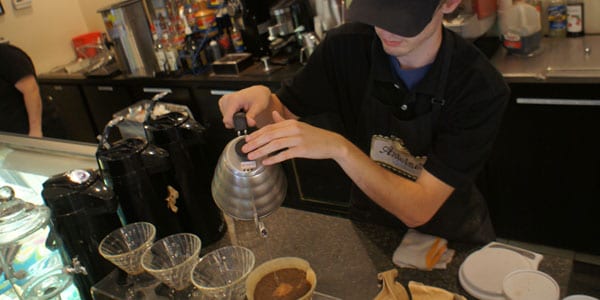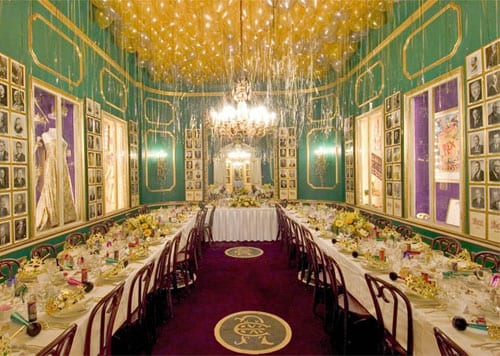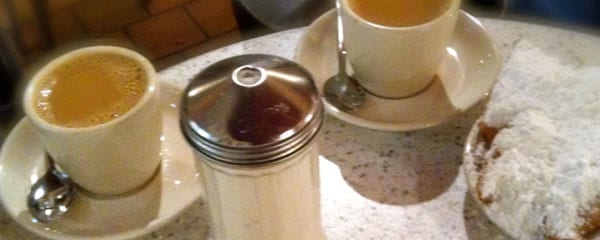“Why anyone would pay four dollars for a cup of coffee when you can get whole bag for the same price, I don’t know.”
My grandfather is a gentle man, but a lion-hearted capitalist. At 92 his mind is still as polished as the gold money clip he carries in his left pocket. For as long as it has anchored him to the world, the clip has framed the face of Benjamin Franklin many times over. The man loves hundred-dollar bills. So it’s not that he doesn’t have the money. But a four-dollar cup of coffee to him is an affront to a moral universe aligned around the judicious accumulation of hard-won capital.
Unfortunately for him, my grandfather lives in Spokane, Washington, which is rapidly becoming one of America’s leading emerging cities for four-dollar cups of coffee. In the last year, a bevvy of cafes and a quality-focused microroaster have hit the city, and good coffee is pouring in over the mountain range that separates Eastern Washington from neighboring metropoli Seattle and Portland. Spokane is suddenly brimming with big-city coffee, served up with a refreshing dose of the town’s quaint friendliness.
“Man, it’s too bad you’re not a drive thru.” That was, more or less, the response Bobby Enslow got when he opened Indaba in 2009 (drive thru coffee is ubiquitous in Eastern Washington). Enslow, 29, was among the first in Spokane to really get nerdy on coffee, and over time his eclectic customers have warmed to his vision. The West Central neighborhood where Indaba is located is historically poor, but the city’s stunningly beautiful Spokane County Courthouse is just around the corner, and a redevelopment project is bringing new life and new money to the area. (“Its just an old dumpy area, that’s all it is,” says my grandfather. “But it’ll improve.”) Enslow regularly serves city council members alongside local homeless. In that regard, Indaba might be one of the more democratic “third place” cafes I’ve ever visited. While Enslow energetically keeps up on the latest trends—with a multiroaster menu, a workhorse La Marzocco Linea from the 80s, pour over service, and signature drinks—Indaba doesn’t necessarily look the part of a high-end cafe. And that is central to its charm. Attached to The Book Parlor, a local used bookstore, Indaba has a kitchen-table feel to it that invites conversation.
Enslow’s menu changes frequently (possibly too frequently), and currently features beans from Seattle’s Slate Coffee Roasters. Slate’s Finca La Gloria (from Panama, naturally processed) was the best espresso I had in Spokane—rich and buttery, with a streak of blueberry and chocolate running through it. The current “house” espresso is Slate’s Mauricio Fidul from Colombia. Also on offer are beans from Portland’s Coava Coffee Roasters and Spokane’s own Manners Roasting (see below). The summer signature drink menu featured the Piccollo Staccato, a drink I literally dreamt about the night I first had it—espresso over ice, with a drizzle of house-made lemon-rind-and-vanilla syrup, spritzed with soda water.
Enslow has been a catalyst for Spokane’s burgeoning coffee scene, organizing latte art competitions as well as a citywide coffee crawl. Every scene and city has a bellweather shop; for Spokane, it’s Indaba. 1425 W Broadway Ave. – Spokane, Washington – (@IndabaCoffee)
Coeur is French for heart. It’s hard to forget it when you meet owner Mike Garrison. Easygoing, good looking, and quick to smile, he clearly loves both coffee and Spokane. “It’s genetic,” he says of his obsession. “My dad smokes a carton of cigarettes a day, and drinks 14 cups of coffee—he’s bad ass.” Raised in nearby Coeur d’Alene, Idaho (just across the border from Spokane) Garrison, who is only 31, built Coeur by hand with earnings from precocious successes as in investor in real estate and gold. “It was basically a slum when we moved in,” he says of the brick and stucco building, constructed in 1895. “I hauled out 9,000 pounds of debris.” Spokane has a profusion of well-preserved historic buildings (more than 50% of downtown buildings have protected status), and Coeur’s home is no exception—it has good bones, with 10-foot-tall windows facing one of Spokane’s iconic bridges, just a few blocks from Indaba.
The small multiroaster menu features coffee from Stumptown, Intelligentsia, and Manners. Garrison also takes care to source milk, honey, and other ingredients locally (from Spokane Family Farm and Chase Honey Company, respectively). “We try to have the best of everything—the best people, the best ingredients,” says Garrison. The effort seems to be paying off: Coeur’s avid following and presence in the Spokane scene has grown substantially in the last few months.
But that Coeur is open at all is almost miraculous. Just a month after the shop debuted in June 2012, Garrison was hit by a car (a teenager blew through a red light while updating his Facebook profile) and suffered major brain injuries. He experiences trauma-induced dementia and epilepsy, and has had to re-learn communication skills. The injury made the first year of being in business rough going, but a year past his accident, Mr. Garrison and his shop have seriously found their stride. “Spokane is a little enclave for talent,” Garrison says. “There are flowers in the cracks here. This is a little city of good.” 701 N Monroe St. – Spokane, Washington – (@Coeur_Coffee)
Neighborly and gregarious, Mike and Deb Nelson are exactly the kind of people that could make my grandfather feel comfortable in a café with four-dollar coffees. Their café, Revel 77, is the newest addition to Spokane’s coffee scene and may hold the most possibility for helping great coffee go mainstream here. Only 8 months old, it still feels sleepy and undiscovered, possibly because of its out-of-the-way strip mall location. It’s the first coffee business for the Nelsons, who named the shop for the year they were married. But you wouldn’t know it. With the Spokane’s only Synesso Hydra, a multiroaster menu, Kalita pour-over service, and espresso flights, Revel 77 is maximally well appointed. (An early attempt to limit drink sizes to 12 ounces flopped—but hey, this is Spokane.)
The Nelsons worked with local architects HDG Design Group to create the design-heavy space, which is airy and open. The menu has all the simple basics—short cappuccinos, lattes, espresso, pour over, a small roster of house-made syrups. When I asked Mike how Spokane’s were responding to the menu and the space, he says, “The people who come in love being part of the process, asking why we weigh everything, being part of the process.” That seems to be true—there was a constant running chatter at the bar between barista and customer.
Natives of Fairbanks, Alaska, the Nelsons landed in Spokane 10 years ago, and have been avidly visiting cafes up and down the west coast ever since. (“We love road trips,” says Mike, who cites Ritual, Barista, and Milstead & Co. as influential.) The coffees on offer include a range of Northwest roasters: Portland’s Water Avenue Coffee, DOMA (from Post Falls, Idaho, just across the border from Spokane—see below), and Manners. 3223 E 57th Avenue – Spokane, Washington – (@Revel77)
Manners Coffee Roasting (Tumblr)
Spokane is a city with impeccable manners—“a small town at heart,” says Jeremy Williamson. That, in part, is why it wasn’t even on Williamson’s radar when he was looking for a place to start his microroastery a few years ago. But a trip to visit friends in the city opened their eyes to its charms: proximity to the outdoors, a profusion of historic architecture, and affordable rent. Williamson and his wife, Erica, were swayed to moved to Spokane in 2012 to start Manners, finally realized a dream they had been incubating for years. In Portland, Williamson had worked as a trainer for Heart Coffee Roasters. Before that, the couple had an ownership stake in Bend, Oregon’s Backporch Coffee Roasters, where Williamson also roasted.
Erica works at two of Spokane’s top restaurants (the city’s food scene is also taking off). One of her favorite things about her customers is that they ask questions—“Not just about the menu, but about you. It’s wonderful.” Williamson says Manners has been met with the same warmth and curiosity. Indeed, it’s clear the company has been enthusiastically embraced by Spokane—Manners is carried in all three of the city’s multiroaster cafes.
Williamson buys his green coffee from Coffee Shrub, two at a time—generally, the menu features one coffee from Africa and one from Latin America. The current menu features an Ethiopian coffee (Shakiso) and one from Guatemala (El Intelligente). “It’s the best quality I can get as a small roaster,” Williamson says. He roasts on a five-pound Ambex in a small, uncluttered space in Hillyard (called “Felony Flats” by locals, the site of ancient rail yards and much of the city’s colorful criminal history). Williamson’s plan is slow and steady growth for Manners—he hopes to open a roastery-cafe eventually. For now, he says, “small is good.”
DOMA is the grand-old dame of specialty coffee in the “Inland Empire.” The mid-size regional roaster was started by Terry and Rebecca Patano 13 years ago after years of bouncing around outdoorsy meccas like Moab, Utah. (Terry ran Café Mondo in Moab, which was a bustling, early outpost for specialty coffee in the 1990s—no syrups, 12 ounce cups, nothing extra hot. I remember being rapturously inducted into the ways of the French press there by a backpacking, cliff-climbing acolyte when I was just a young thing in the late 90s.) Since DOMA’s early days in the couple’s garage, it has grown into a healthy regional roaster, supplying many of the area’s drive thrus, as well as bustling cafes in Spokane, Boise, and elsewhere. The Patanos are busy working to turn the roastery’s training room into a public tasting room that should be open in a few months (“Don’t call it a café, or I quit” Rebecca laughs.)
DOMA is a proud member of Cooperative Coffees, a community-based buying collective that sources from coops around the world. The Patanos travel regularly to visit coffee farms, usually bringing along their two children. “A guy said to me recently, ‘Someday our kids are going to work together.’ That’s incredible to think about.” Head roaster Jim Hottenroth (formerly of Capitola Coffee Roasters and La Taza Rossa) is also deeply committed to the social justice and solidarity missions that DOMA and Collective Coffees share. Hottenroth uses a Loring Smart Roaster, which they call “Lucky 13”—it was the thirteenth machine off the assembly line. At DOMA, he works with a roughly equal mix of single origin coffees and blends.
If you don’t know DOMA’s coffee, you may be familiar with their outstanding design and packaging. The company recently took home five gold awards at the Inland Northwest ADDY award competition (the first level of a three-tiered competition national advertising competition; the company has previously won national ADDYs). Rebecca does all of the company’s design work, partnering with local artists and illustrators. 6240 E. Seltice Way – Post Falls, Idaho – (@domacoffee)
***
Hanna Neuschwander is the author of Left Coast Roast, “a guide to artisan and iconic coffee roasters from San Francisco to Seattle” published by Timber Press. She is a regular contributor to Portland Monthly, Edible Seattle, Willamette Week, and Sprudge.com.











